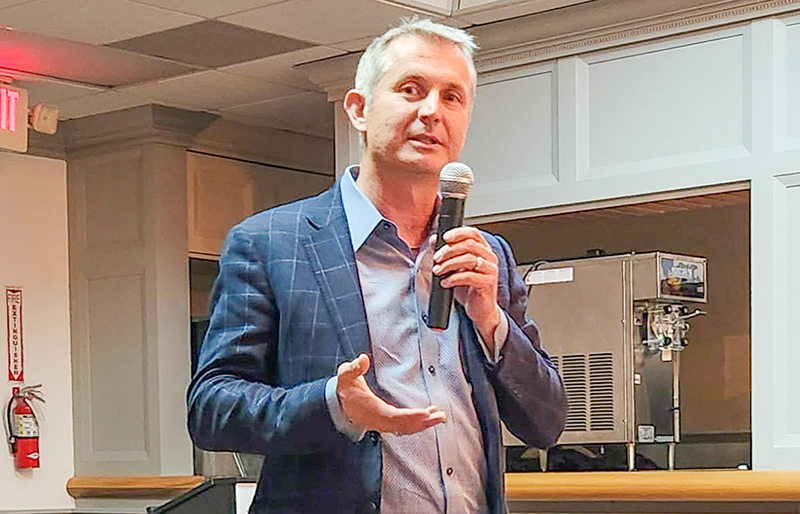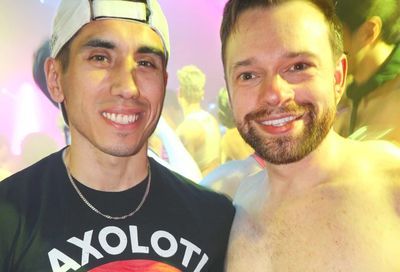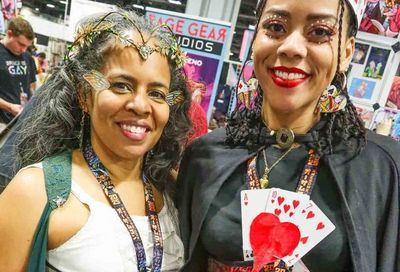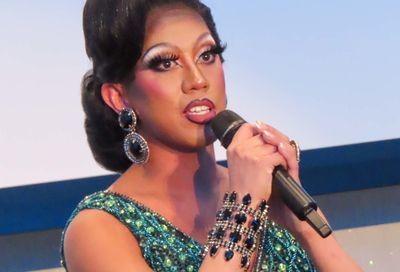Transgender Homicides in Baltimore and Elsewhere Raise Alarm
NBJC, NCAVP and others call on authorities to solve recent killings of trans women in Florida, Maryland and Ohio
The New York-based National Coalition of Anti-Violence Programs (NCAVP) and the D.C.-based National Black Justice Coalition (NBJC) are calling for action after recent killings of young transgender women of color.
Both groups – who have partnered along with NCAVP member organizations Buckeye Region Anti-Violence Organization (BRAVO) of Ohio and Florida’s SunServe Services, to raise awareness about the crimes, which include the April 3 murder of 29-year-old Kelly Young of Baltimore – released a joint statement May 2 calling on law enforcement solve the cases.
In addition to the murder of Young, the activists are drawing attention to the murder of 30-year-old Ashley Sinclair of Orlando, Fla., and 20-year-old Cemia Dove of Cleveland, whose murder gained national attention and criticism from the LGBT community after the local newspaper, The Plain Dealer, ran coverage that many decried as insensitive to transgender people, referring to Dove as male and ”oddly dressed.” All three murders remain unsolved.
”Each year, NCAVP tracks the homicides of lesbian, gay, bisexual transgender and queer (LGBTQ) people in the U.S. in which an anti-LGBTQ motive is known,” Chai Jindasurat, coordinator at the New York City Anti-Violence Project (AVP), said in a statement. ”However, for many LGBTQ homicide victims, especially transgender women and people of color who are disproportionally affected by anti-LGBTQ violence, a motive is never determined. It is imperative to call attention to these incidents so that the lives of these individuals are not forgotten or overlooked and so that we can bring all resources to bear to discover what happened to them, when that is possible.”
According to NCAVP, there were 30 documented cases of anti-LGBTQ homicides in 2011. Transgender women made up 40 percent of the 30 murders, and 87 percent of victims in 2011 were LGBT people of color.
”Enough is enough,” Sharon Lettman-Hicks, executive director and CEO at NBJC, said in a statement. ”Three unsolved homicides within one month should elicit a national outcry. We need to hold our law enforcement officials accountable at every level – from local police departments that need to work tirelessly to find these killers and bring them to justice, to federal agencies such as the Department of Justice that should create a national task force to address the serial killings of black trans women in this nation. How many more lives must be lost before we takes serious action to stop this madness?”
Days after Young’s murder, Baltimore police told area TV news outlets that it was too soon to tell whether Young’s death could be considered a hate crime. Young was found with a single gunshot wound inside a residence in the 2200 block of Barclay Street, near King and Kennedy Park and Mund Park. She was transported to a local hospital and later pronounced dead.
Police are asking anyone who may have information related to Young’s murder to call the Baltimore City Police Homicide Division at 410-396-2100.
Support Metro Weekly’s Journalism
These are challenging times for news organizations. And yet it’s crucial we stay active and provide vital resources and information to both our local readers and the world. So won’t you please take a moment and consider supporting Metro Weekly with a membership? For as little as $5 a month, you can help ensure Metro Weekly magazine and MetroWeekly.com remain free, viable resources as we provide the best, most diverse, culturally-resonant LGBTQ coverage in both the D.C. region and around the world. Memberships come with exclusive perks and discounts, your own personal digital delivery of each week’s magazine (and an archive), access to our Member's Lounge when it launches this fall, and exclusive members-only items like Metro Weekly Membership Mugs and Tote Bags! Check out all our membership levels here and please join us today!






















